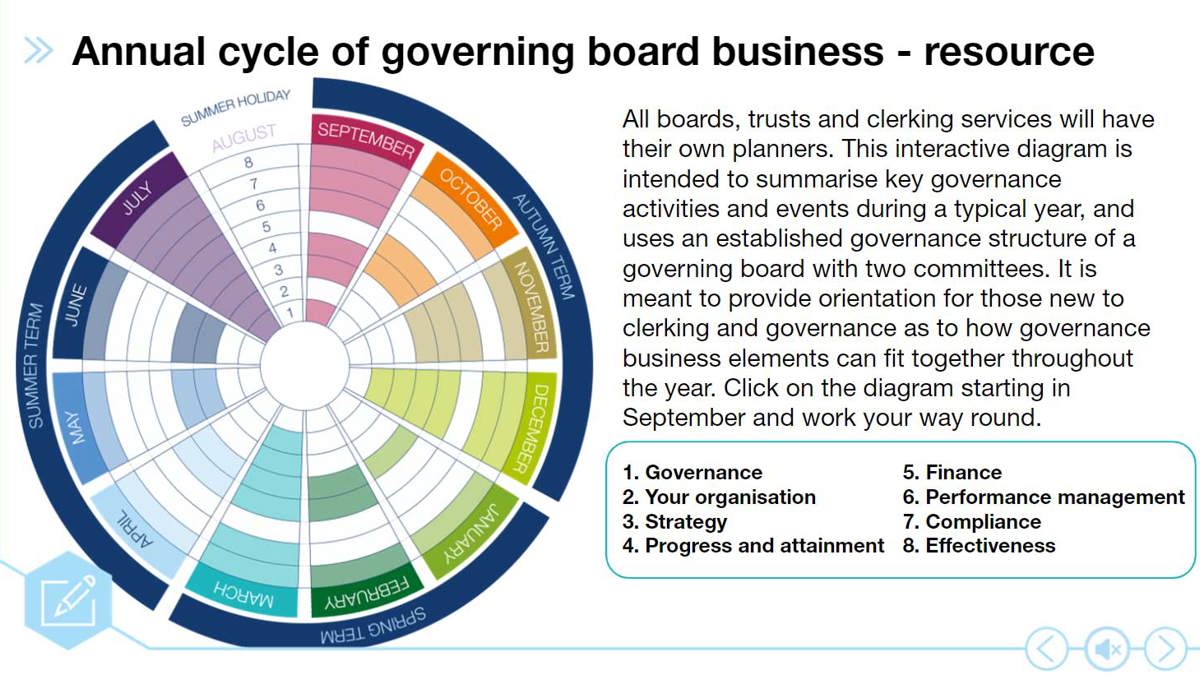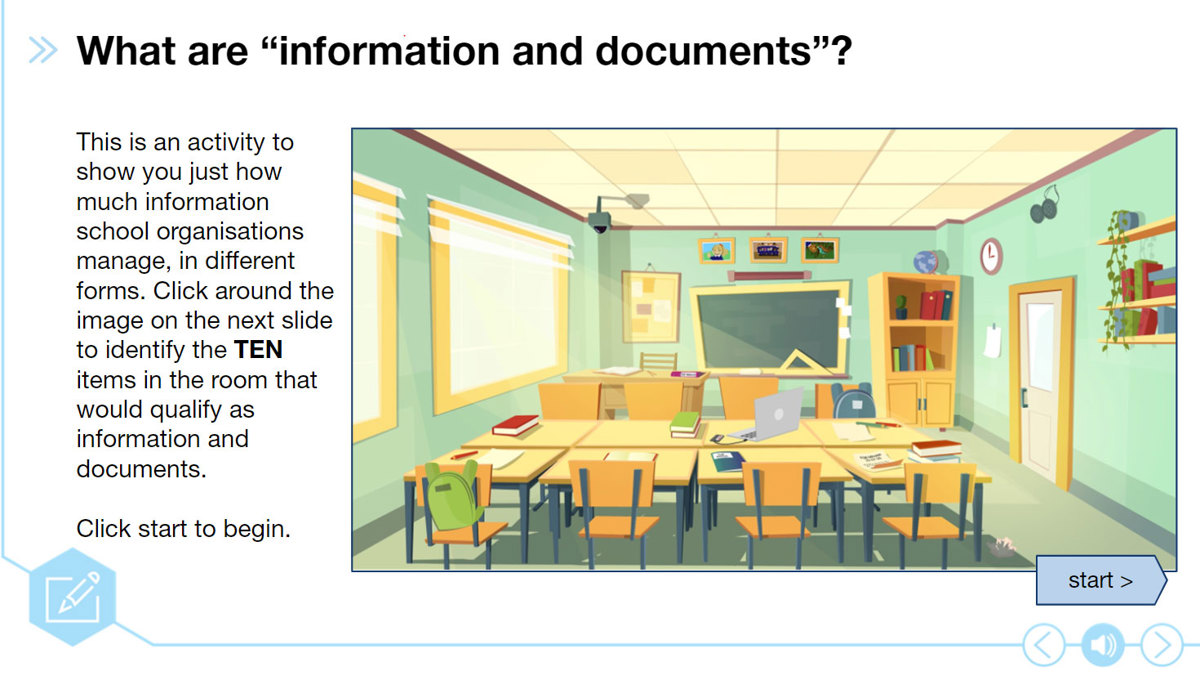
At a glance
This programme is aimed at those new to clerking or who are considering taking up their first clerking position in any school setting, be it maintained, independent, trust board or at local governance level.
You will cover:
4 hours
Programme modules
Module 1: Welcome to the Introduction to clerking programme
This module provides a short introduction to the suite of e-learning modules that make up the introduction to clerking programme. New clerks should study the modules in the order they are listed.
It gives you the main aims of the programme, what will be covered, and how you can approach the learning based on your role and setting. It also includes a short welcome video from NGA’s Director of Professional Development Emma Balchin.
Module 2: What does the governance professional do?
This module, the first in the Introduction to Clerking Programme, provides a practical and realistic overview of what the role can involve. It focuses on the core expectations of the clerk that you need to meet at the start of your career but also identifies ways in which you will be able to expand your practice as a governance professional as you gain more experience, through the use of interactive activities, knowledge checks and a video from former Parliamentary Under-Secretary of State for School System, Baroness Berridge.
Module 3: How governance works
It is important for clerks to develop a thorough understanding of governance in order to effectively support the governing board. This module gives you the opportunity to find out what governance is and, more importantly, what effective governance looks like. Through the use of interactive knowledge checks and activities, this module will provide all governance professionals with the context that will allow them to become effective at their role from the start.
Module 4: How to: clerk in different types of school organisation
This module provides an outline of the many types of school organisations and how these affect the role of the governance professional. It gives an overview of the differences between various school settings, including a helpful introductory video from independent governance professional and NGA consultant Erica Wilson, and uses knowledge checks to ensure your understanding of the topic. It also suggests practical next steps once you have completed the learning, and options for further reading.
Module 5: How to: find and use key sources for governance
No governance professional can be expected to know all of the rules and guidance. It is not possible or necessary, but you do need to have a sound base knowledge. This module provides simple approaches that you can take to solve any governance problem, and the sources of information, guidance and support that will help you to tackle it. Through interactive activities and helpful videos from independent governance professional and NGA consultant Erica Wilson, you will gain an understanding of the key sources, laws and regulations that you need to carry out your role effectively from the start.
Module 6: How to: arrange meetings
Governance is a collective exercise which inevitably means that most of the important work is done at meetings, be they face-to-face or virtual. So, the clerk’s role in helping to get these meetings right is absolutely crucial to effective governance. This module explains why meetings are needed and demonstrates how the governance professional can help with the scheduling, agenda setting and organisation of meetings, through interactive activities and helpful videos from a chair of governors, who explains how the governance professional at his school contributes to the smooth and effective running of meetings.
Module 7: How to: minute a meeting effectively
Producing high quality minutes for meetings of governing boards and committees can be quite a daunting prospect for new clerks as well as for those with more experience.
This module addresses this challenge in a practical way by providing approaches and examples of how to help produce minutes that both the clerk and the board will be proud of. By the end of this module you will understand how to provide minutes that are compliant, accurate and evidence the effectiveness of governance.
Module 8: How to: manage information and documents
A key aspect of the governance professional role is the management of information and documentation in a way that provides easy access for you and your governing board. However, there are rules that must be followed.
This module explores which governance records need to be kept and how they need to be stored, and the different ways in which information, records and documents need to be published. It will help you to develop an approach to managing information and documents that achieves easy access, whilst satisfying compliance requirements and ultimately contributing to the effectiveness of the governing board.
Module 9: How to: support the recruitment, appointment, election and retirement of governors and trustees
It is important to get the right people on governing board when they are needed. As a governance professional, you won’t be appointing new members yourself but your role is vital to the process.
This module provides a practical overview of how the governance professional supports recruitment, appointment and retirement of governors and trustees. It also covers how, as the governance professional, you can move beyond the support role around appointments and elections to take on more responsibility for helping to find suitable new board members and ensuring that succession is properly planned and completed.
Learning Link
Start this programme
Learning Link subscribers
Log in to access this module or create an account.
Not yet subscribed?
Sign up for a free trial or purchase a subscription.
Preview slides
Who developed this programme?

Paul Aber
Head of Training Development
Paul leads and manages NGA’s face-to-face training, e-learning and development programmes. This includes recruiting, training and managing NGA’s team of consultants and trainers. Paul has many years’ experience of governance, including in maintained schools and academy trusts.

Amy Wright
Clerking Development Manager
Amy steers the support, advice and training available to clerks and other governance professionals. She has over 20 years’ experience in governing roles and working as a clerk to various governing bodies in schools.



















